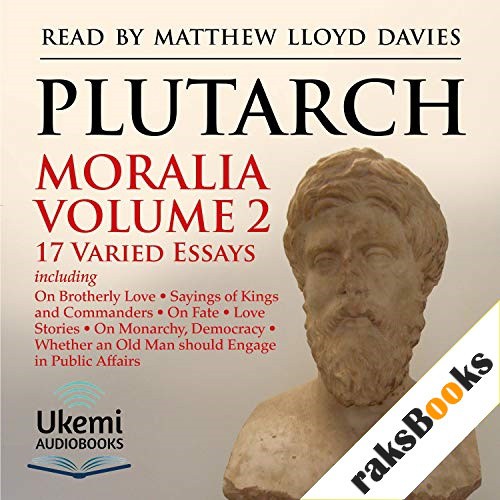Lucius Mestrius Plutarchus (46 ce – after 119) was born in Chaeronea, Boeotia, to a wealthy Greek family and assumed his full Latin name on becoming a Roman citizen. He made the most of his varied background and experience as a philosopher, magistrate, ambassador and priest at the Delphic Temple of Apollo, to become one of the most important biographers and essayists of classical Greek and Roman times. His Parallel Lives, which recounts and describes the personalities and achievements of the great figures of the era, is his most well-known (and voluminous) text. But Moralia, his collection of essays on a rich variety of subjects, continues to fascinate and educate.
Volume 2 comprises 17 essays which are arguably even wider ranging than the Ethical Essays in Volume 1, opening with ‘On Listening to Lectures’, in which he warns against the habit of ‘the great majority of persons who practise speaking before they have acquired the habit of listening’. Plutarch is didactic, entertaining, informative and at times controversial. He considers atheism in ‘Superstition’, asks ‘Were the Athenians more famous in War or in Wisdom?’ and in ‘On Love of Wealth’ confirms that money can’t buy you love: nor ‘peace of mind, greatness of spirit, serenity, confidence, and self-sufficiency’.
Plutarch’s fascination with history and biography is also apparent here with some absorbing tales in ‘Sayings of Kings and Commanders’, ‘Sayings of Spartan Women’ and ‘Bravery of Women’. Taking another tack, he turns his attention to the political sphere in ‘A Philosopher ought to Converse especially with Men in Power’. And he gives advice ‘To an Uneducated Ruler’, pointing out that ‘most kings and rulers are so foolish as to act like unskillful sculptors, who think their colossal figures look large and imposing if they are modelled with their feet far apart, their muscles tense, and their mouths wide open’ – advice that is just as relevant to rulers in the 21st century. Throughout these essays there is humour, whimsy and wisdom, but above all Plutarch demonstrates an engaging humanity in his survey of man, in all his greatness and his foibles. Matthew Lloyd Davies is an ideal representative.
Translations by Richard Shilleto.








Reviews
There are no reviews yet.